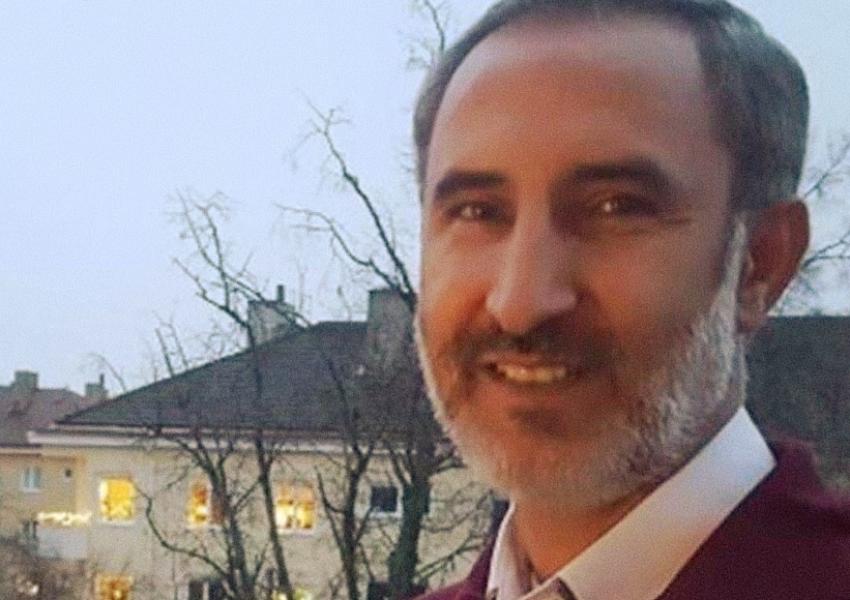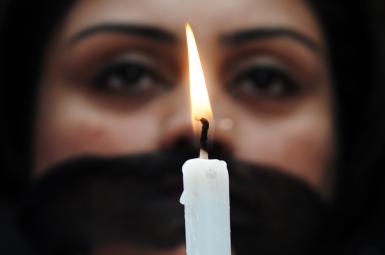
Sweden Opens Murder Trial Over 1988 Iran Prison Executions
The first session of the trial of Hamid Noury (Nouri), a 60-year-old Iranian, over his alleged role in prison executions in Iran in 1988 was held Tuesday in Stockholm, Sweden, while tens of protesters including some members of victims' families protested outside the courthouse.
Noury was arrested while visiting Sweden in November 2019 and is the first to stand trial anywhere for alleged involvement in the massacre. He has denied any connection with the executions and defense counsel Daniel Marcus told the court that his client was not present where the executions took place.
The Swedish prosecutor, Kristina Lindhof Karlsson, told the court that based on evidence including witness accounts, Noury had been charged with murder and war crimes in the execution of 4,000 prisoners between July 30 and August 16, 1988. This would tie him to a wave of executions of members of the Mujahedin-e Khalq Organization (MEK) following an order from Ruhollah Khomeini, Iran’s supreme leader, rather than to the subsequent executions of leftists.
Crimes against humanity
Commissions summarily questioned both MEK and leftist prisoners who had mostly already been tried and sentenced by revolutionary courts in various prisons and ordered their execution if they did not show remorse.
Plaintiffs accuse Noury, allegedly a member of a special commission at Gohardasht Prison in Karaj, of the torture, execution, and secret burial of thousands of prisoners. Around 110 witnesses and 50 plaintiffs attended the court Tuesday. Nasrollah Marandi, one of the plaintiffs present in the trial Tuesday, told Iran International TV that he remembers Noury taking prisoners in groups of ten to 12 for execution on 5 August 1988 at Gohardasht. Marandi said he lost four of his close relatives during the massacre.
The MEK’s National Council of Resistance of Iran, which is based in Albania after expulsion from Iraq, in 2019 launched a booklet “Crimes Against Humanity” naming over 5,000 members executed in 1988. The MEK, whose own human rights record and cult-like behavior is highlighted by critics, constantly highlights the executions in its propaganda.
The group carried out bombings and assassinations in Iran in the 1980s, and allied itself with Saddam Hussein during and after the Iran-Iraq war (1980-88), after which in July 1988 it launched an offensive against Iran from Iraq but was pushed back by the Iranian military.
Universal jurisdiction
The Noury case is a rare example of universal jurisdiction, which floundered with unsuccessful cases in Britain in 1998 against former Chilean dictator Augustine Pinochet and in Belgium in 2001-3 against former Israeli premier Ariel Sharon over the 1982 massacres in Beirut’s Sabra and Shatila Palestinian camps.
Western leaders have generally been skeptical and the United States has refused to sign the Rome Statute establishing the International Criminal Court in 2002 to deal with crimes against humanity and genocide.
The trial has gained attention due to the election in June of Ebrahim Raisi, former chief justice, as Iran’s president. Protestors outside the court Tuesday demanded that Raisi, who was assistant prosecutor in Tehran in 1988, be charged in Sweden and elsewhere over the 1988 executions.
Asked about the prison massacres in his first press conference after his election, Raisi said he had always defended national security. "If a judge, a prosecutor has defended the security of the people, he should be praised,” he said. “I am proud to have defended human rights in every position I have held so far.”




